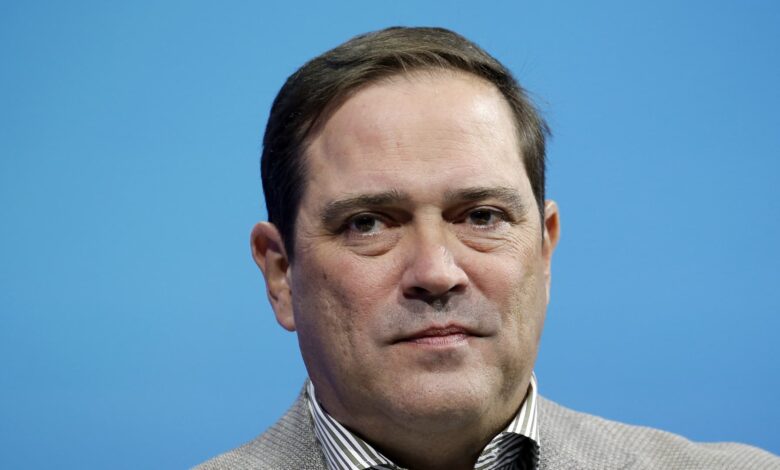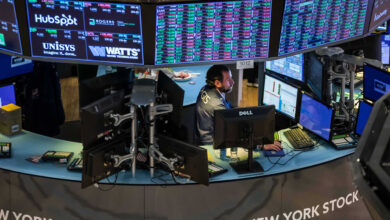Cisco stock falls 12% on guidance

Cisco’s Chairman and CEO Chuck Robbins.
Chesnot | Getty Images News | Getty Images
Cisco shares slid 12% Thursday morning, putting shares on pace for the worst day since May 19, 2022 when the stock slipped 13.7%.
The fall comes a day after the company reported its quarterly earnings that beat on the top and bottom lines but gave weaker-than-expected revenue guidance for the fiscal second quarter. It also reduced its full-year revenue forecast.
The company cited a slowdown in orders as customers deployed Cisco products they had purchased in recent quarters.
“The bottleneck that we previously saw in the supply chain has now shifted downstream to implementation by our customers and partners,” said CEO Chuck Robbins on the earnings call.
Cisco posted adjusted earnings per share of $1.11, beating the $1.03 LSEG (formerly Refinitiv) estimate. It reported $ 4.67 billion in revenue for the quarter versus the $14.61 billion projection. But it called for 82 cents to 84 cents in adjusted earnings per share on $12.6 billion to $12.8 billion in the fiscal second quarter. That implies a 6.6% revenue decline. Analysts polled by LSEG had expected 99 cents in adjusted earnings per share on $14.19 billion.
Analysts keyed in on the guidance cut to revenue despite the earnings beat and the upward revision to its full-year earnings.
“CSCO’s product orders slowed in the quarter on customer inventory digestion with CSCO estimating 1-2 quarters of inventory left to be digested by customers,” said Goldman Sachs analysts in a note to investors.
Bank of America analysts said that “the 20% decline in product orders has driven a 6% down swing in FY24 revenue guidance, or a $3.2bn cut.”
“We don’t attribute it to any competitive factors, rather it is simply a return to the true revenue environment ex-backlog drawdown support, with additional weakness related to orders reverting to the mean, following the 17.4% and 20.3% product revenue growth in 3Q23 and 4Q23, respectively,” they wrote to investors.
CNBC’s Jordan Novet and Michael Bloom contributed to this report.




